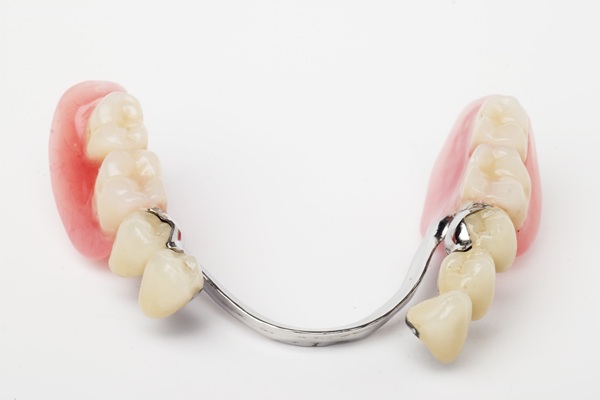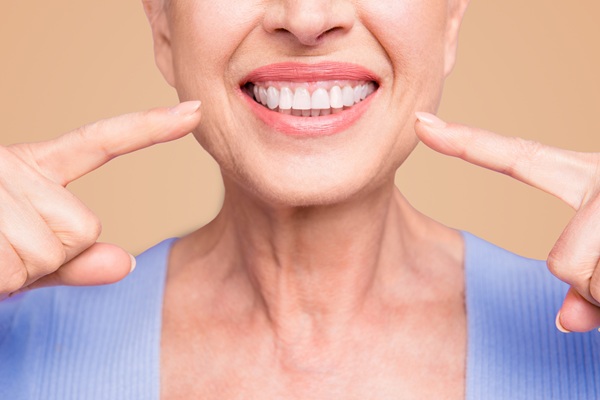Signs and Symptoms of Oral Cancer

Oral cancer is a serious disease that can affect all parts of the mouth. If you suspect you have this condition, you should visit a general dentistry professional or doctor right away. Some people are more prone to getting the disease than others. There are also clues that should give you a good idea that you are on the verge of getting the disease or that you need treatment. Fortunately, if a doctor identifies it early enough, you can recover and enjoy your daily life without pain and discomfort.
What are the risks?
Like all types of cancers, some habits or activities increase a person’s risk of getting the disease. It is helpful for people to be familiar with these, so they can make the necessary changes. Age can play a major role in contracting the disease. Older people in their 50s and 60s have the greatest risk of getting oral cancer. Smoking and drinking alcohol can bring on this type of cancer as well. People who spend a lot of time outdoors should be careful not to have too much sun exposure. Prolonged direct contact with ultraviolet light can make a person prone to getting the disease.
Sores in the mouth
Oral cancer can attack any part of a patient’s mouth, including the cheeks, tongue, roof of the mouth, tonsils and gums. Red and white sores are common among oral cancer patients. These sores can remain in the mouth for weeks and can increase in size and intensify in color. Unlike other types of sores in the mouth, these do not easily go away.
Pain and discomfort
Cancer usually brings pain to the patient, and cancer of the mouth is no exception. The pain can start in the jaw. It is often present while eating when it can hurt to chew or swallow. Even the tongue and neck can be painful. Swelling will often accompany the pain and irritation.
Something is stuck
People may sometimes take too big of a bite and not chew it enough. This can make it hard to swallow and something may even get stuck in the throat. However, if a person has oral cancer, these sensations may persist all the time. There may not even be any food in the throat, but it could be a lump or tumor that is causing the feeling.
You need a checkup to look for oral cancer
If you have any of these symptoms, it is critical to act quickly and not put off a visit to the dentist or doctor. The longer you wait, the greater the likelihood of more serious problems developing. Your dentist or doctor can identify whether you have the disease. From there, a treatment plan can map out what you can expect. Recovery is possible, no matter how large the tumor may be. Call your doctor today, so you can start to attack this disease and reduce the pain and discomfort you are feeling.
Request an appointment here: https://lincroftvillagedental.com or call Lincroft Village Dental Care at (732) 842-5005 for an appointment in our Lincroft office.
Check out what others are saying about our services on Yelp: Read our Yelp reviews.
Recent Posts
There are many benefits to removable partial dentures instead of alternative treatment solutions (i.e., implant-supported bridges). Understanding the advantages of partial dentures can help you make the most informed choice possible about the best way to replace your missing teeth.Removable partial dentures are a form of teeth replacement for a section of missing teeth. They…
Full mouth reconstruction involves replacing and repairing damaged or missing teeth. A treatment plan includes a variety of different treatments, and one common procedure is known as dental bridge treatment. This review takes a closer look at how general dentists use dental bridges to replace teeth during full mouth reconstruction. Most patients have several available treatment…
Experiencing a need for a denture repair? Unfortunately, dentures are extremely prone to accidents, which can result in damages such as cracks or chips. When this happens, a lot of wearers wonder what they should do next. The answer is simple, visit a dentist's office.Denture repair should always be done by a dentist, but why?…
Most adults experience some degree of gum disease during their lifetime, but it does not necessarily lead to tooth loss. Understanding how to identify and treat the stages of this common ailment can prevent it from spreading and reduce its impact.Gum disease is an infection of the gum tissue surrounding the teeth. It starts with…


